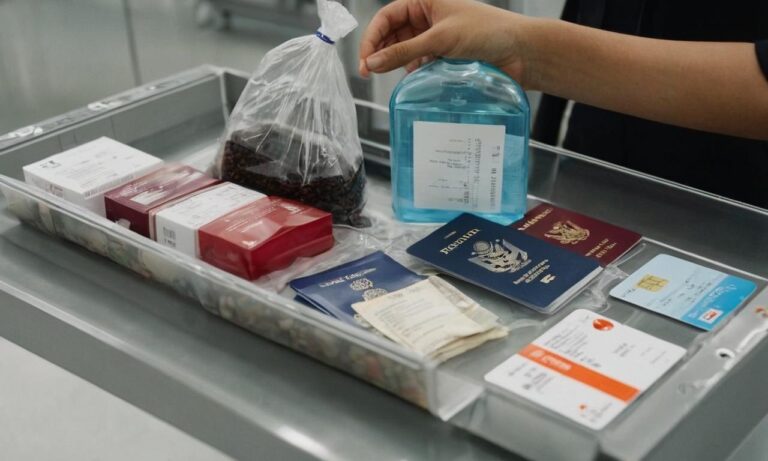Traveling with medication, especially liquid medicine, can be a concern for many passengers. Whether you’re heading on a short domestic flight or embarking on an international journey, understanding the rules and regulations regarding carrying liquid medicine on a plane is crucial for a smooth travel experience.
Understanding TSA Regulations
The Transportation Security Administration (TSA) oversees security procedures at airports in the United States. When it comes to carrying liquid medication, the TSA has specific guidelines that passengers must adhere to. According to TSA rules:
- Medications in liquid form are allowed in carry-on bags.
- You are not required to place your liquid medication in a zip-top bag.
- Declare your liquid medication to the security officer at the checkpoint for inspection.
It’s essential to note that these regulations apply to both prescription and over-the-counter liquid medications. Additionally, if you have larger quantities of liquid medication, it’s advisable to inform the security officer in advance.
International Travel Considerations
For those traveling internationally, it’s crucial to research and understand the regulations of the destination country. While many countries have similar rules to the TSA, there may be variations in the specifics of carrying liquid medication. Check with the airline and review the guidelines of the country you are visiting to ensure compliance and a hassle-free journey.
Documentation and Prescription Verification
Carrying a copy of your prescription or a note from your healthcare provider can be beneficial. In case questions arise at security checkpoints, having proper documentation can help expedite the process. Ensure that the prescription includes your name, the medication details, and the prescribing physician’s information.
Special Considerations for Specific Medications
Some liquid medications, such as syrups and solutions, may be subject to additional scrutiny. It’s advisable to contact the airline in advance if you have concerns about specific medications or if you are unsure about any regulations. Airlines often have customer service representatives who can provide guidance on traveling with particular types of liquid medication.
Traveling with liquid medication is generally allowed, but it requires awareness of the rules and proper preparation. By understanding TSA regulations, researching international guidelines, and having necessary documentation, you can navigate the security process with ease. Always prioritize the safety of your medication and follow the guidelines to ensure a stress-free travel experience.
Frequently Asked Questions
As travelers navigate the intricacies of carrying liquid medication on a plane, common questions arise. Here are some frequently asked questions to provide additional insights:
Can I Carry Frozen Medications?
If your liquid medication needs to be kept frozen, you may wonder about transporting it during your journey. The TSA allows frozen gel packs or ice packs to keep medications cool. Declare them at the security checkpoint for inspection.
Are Herbal or Dietary Supplements Subject to the Same Rules?
Herbal and dietary supplements often come in liquid form. While they are generally permitted, it’s crucial to ensure they comply with the TSA regulations. Carry a copy of the supplement facts and ingredients to address any potential concerns during the security check.
What About Expired Medications?
Travelers may have expired medications that they still need to carry. The TSA does not specifically regulate expired medications, but it’s advisable to bring a new prescription or a note from your healthcare provider explaining the necessity of carrying expired medications.
| Question | Answer |
|---|---|
| Can I pack liquid medications in checked baggage? | While it’s generally allowed, it’s recommended to keep essential medications in your carry-on in case of baggage delays or losses. |
| Do the rules apply to children’s liquid medications? | Yes, the rules apply to medications for all ages. Ensure you have the necessary documentation for children’s medications as well. |
Additional Tips for a Smooth Travel Experience
Aside from understanding regulations and documentation, here are some extra tips to enhance your experience when traveling with liquid medication:
- Organize your medications in a transparent, resealable bag for easy inspection.
- Arrive at the airport with ample time to go through security without feeling rushed.
- Keep contact information for your healthcare provider in case of emergencies or questions.






